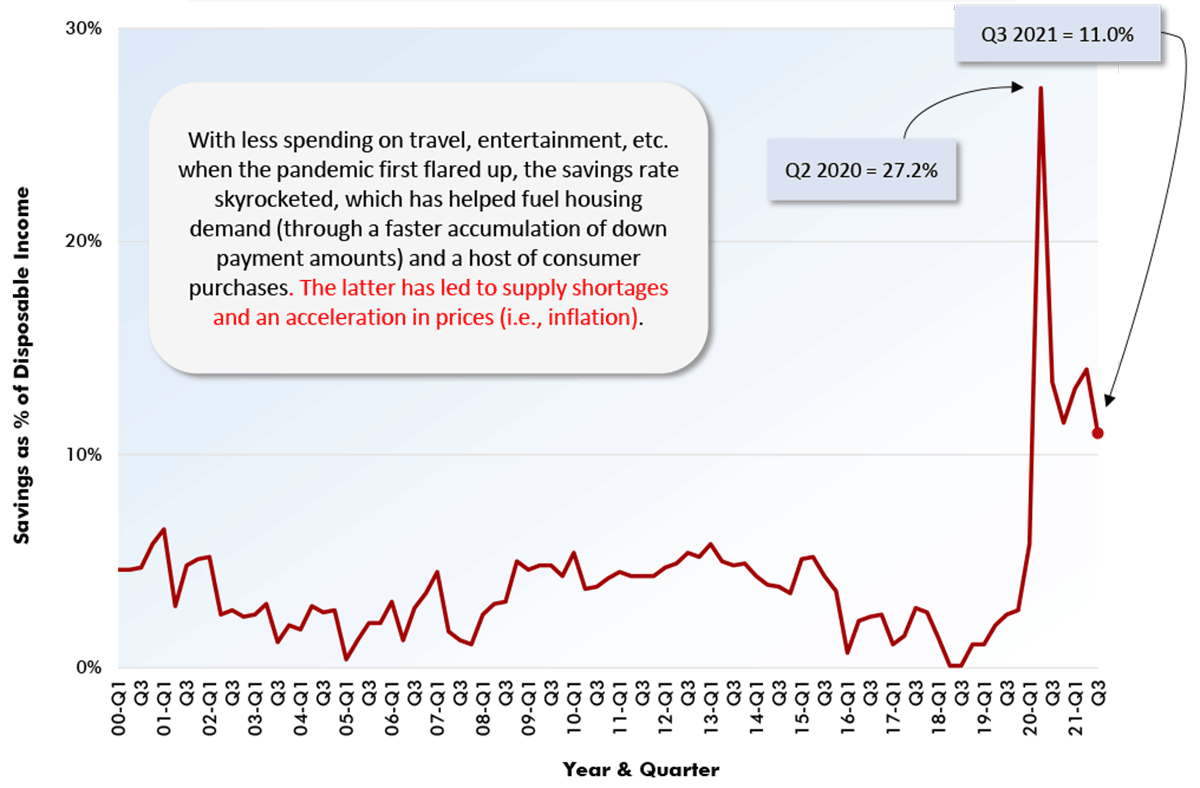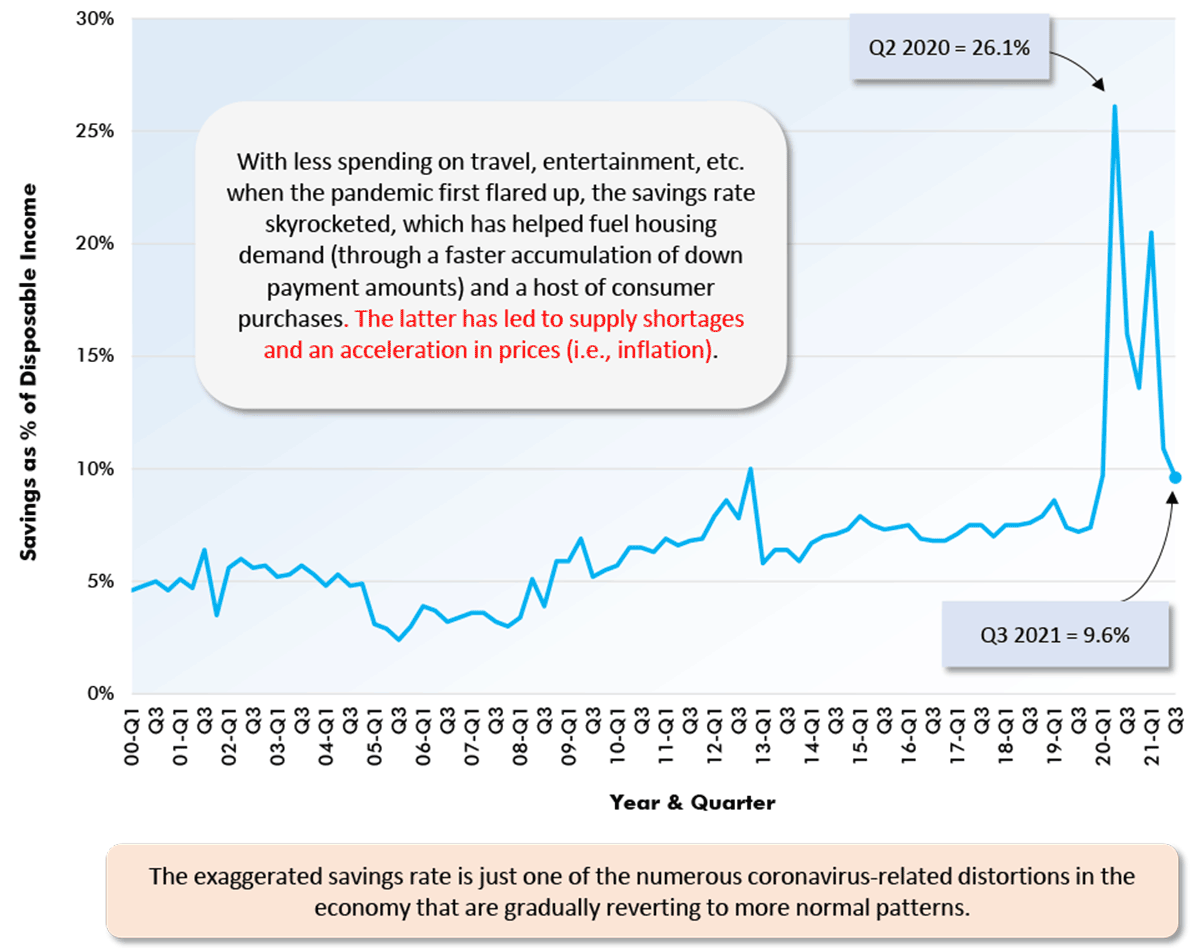
Forecaster Charts & Tables
Extras
Demography, infrastructure, building product costs and wages are also determinants of the construction sector’s health.
ºÚÁϳԹÏÍø 'Real' GDP Growth, Y/Y & Q/Q

Data source: Statistics ºÚÁϳԹÏÍø Table 36-10-0104-01 / Chart: ConstructConnect-CanaData.
U.S. 'Real' GDP Growth, Y/Y & Q/Q

‘Real’ is after adjustment for inflation.
Data source: Bureau of Economic Analysis (BEA) / Chart: ConstructConnect-CanaData.
Household Savings Rate in ºÚÁϳԹÏÍø

Data source: Statistics ºÚÁϳԹÏÍø/Chart: ConstructConnect — CanaData.
Personal Savings Rate in the U.S.

Data source: Bureau of Economic Analysis/Chart: ConstructConnect — CanaData.

Recent Comments